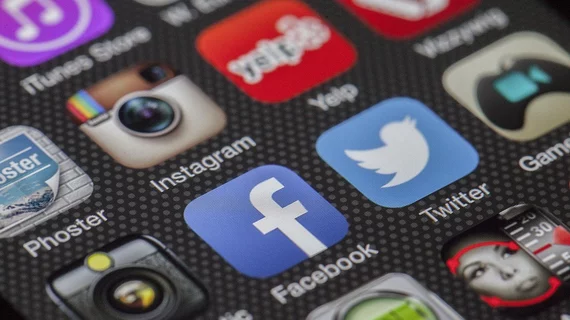Radiologists are not adequately disclosing their financial conflicts of interest on social media, study charges
Interventional radiologists and other endovascular specialists are not adequately disclosing their financial conflicts of interest on social media, according to new research published Tuesday.
Across 80 posts containing a mention of 100 specific devices or companies on X (formerly Twitter), such conflicts were present about 53% of the time. When mentioning a specific product, about 40% of IR specialists and 62% of neurosurgeons had a conflict of interest, experts wrote in the Journal of Vascular and Interventional Radiology.
Without adequate disclosures, researchers contend that other physicians and patients reading such social media posts cannot weigh the possible bias for themselves.
“When it comes to social media, physicians should apply the same principles of disclosure that they do to academic publications, conferences and their general practice,” lead author Thomas Webb, a student at USC’s Keck School of Medicine, and colleagues wrote March 19. “A physician posting about specific medical devices or products should disclose any financial relationship they have with the manufacturer or their competitors. Further development of ethical guidelines and the continuing education of physicians on how to disclose these conflicts is crucial, so that physicians, trainees and the public can continue to use social media as the valuable resource that it is while minimizing potential bias.”
For the study, Webb et al. analyzed nearly 14,000 posts shared to X during the final two months of 2021. They pinpointed those shared by U.S. interventional radiologists and related specialties, which mentioned a specific product or manufacturer. They defined a “positive conflict of interest” as a physician receiving a payment from the company within three years prior to the social media post. They also used the Centers for Medicare & Medicaid Services’ Open Payment database to identify docs who had received such disbursements.
Specialists who mentioned a specific device or company were nearly 4 times more likely to have a positive conflict of interest, compared to the control group. Of the 31 with a conflict, the median physician received $2,270 and none of the positive COIs were disclosed. The overall frequency of posts mentioning a device or company by name was low (at 0.6%). However, other studies have found that 85% of the general public uses social media to learn more about healthcare.
“As patients try to navigate the healthcare system with the help of [social media], the probability that they are coming across and being influenced by these undisclosed COIs will increase,” Webb and co-authors wrote. “With undisclosed COIs being posted on a publicly available website, the effect of these posts and the potential biases they create can reach far outside the medical community.”
Read much more in JVIR at the link below, including potential study limitations.

